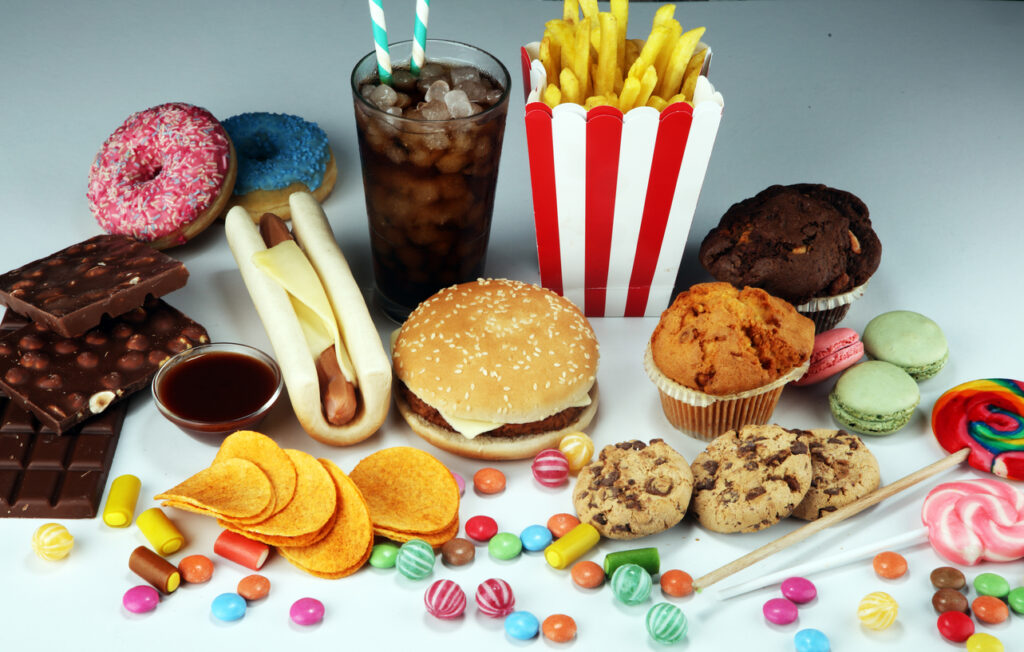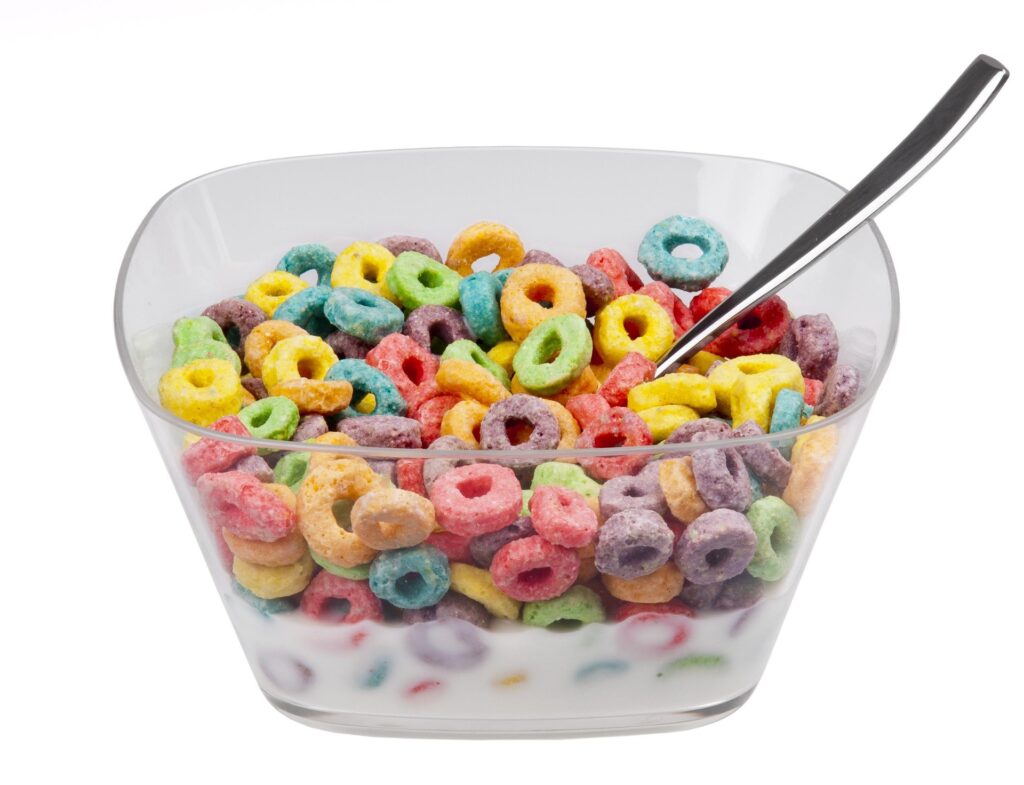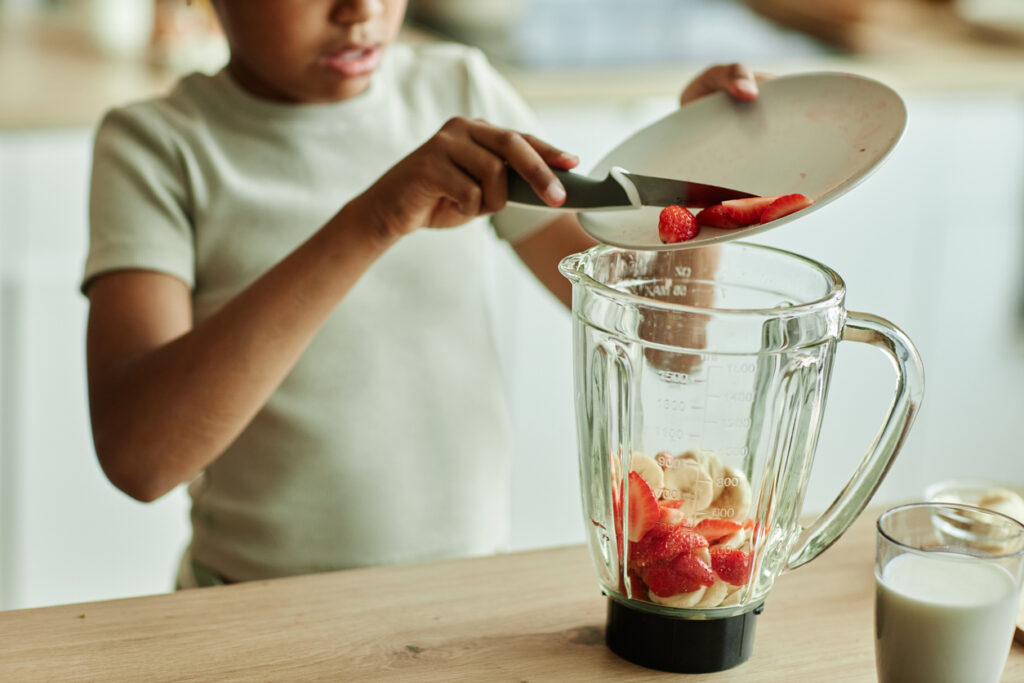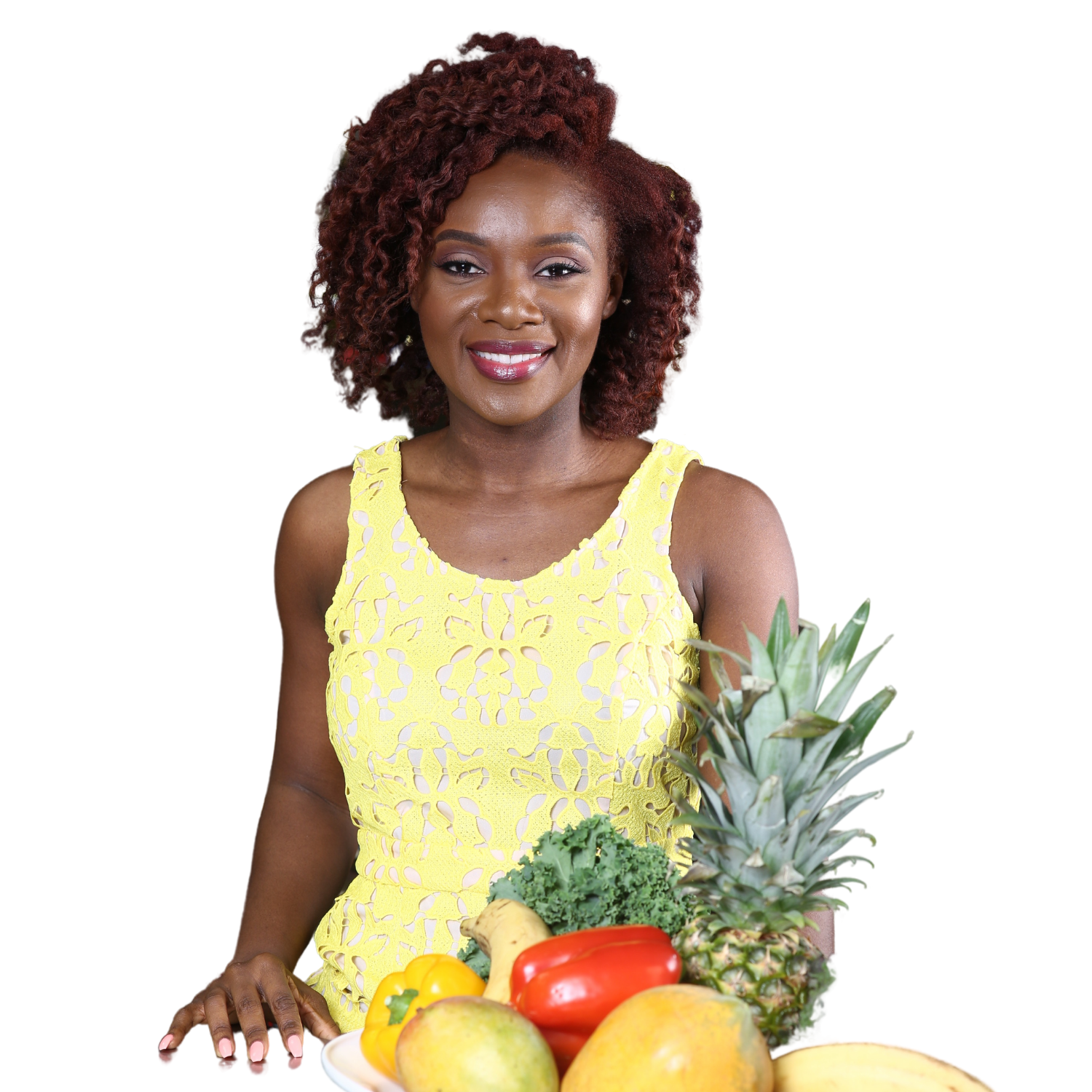
Let’s talk about something that’s become a major part of the American pantry, ultra-processed foods. As a Registered Dietitian Nutritionist and a mom of five boys, I know how easy it is to rely on convenience foods to keep up with life’s demands. But not all convenience is created equal, and the rise in ultra-processed foods is something we need to look at closely, especially for the health of our children and families.
What Are Ultra-processed Foods?
Ultra-processed foods (UPFs) go beyond your basic boxed pasta or frozen veggies. These are foods that have been formulated mostly or entirely from substances not typically found in a home kitchen, think artificial flavors, colorings, emulsifiers, preservatives, and industrial ingredients like maltodextrin or high-fructose corn syrup.
Examples include:
- Packaged snack cakes
- Sugary cereals
- Soda and sweetened beverages
- Chicken nuggets
- Flavored chips
They’re often engineered to be hyper-palatable, meaning they’re easy to overeat, and are stripped of the fiber, vitamins, and minerals found in whole foods.

Are Ultra-processed Foods Really That Bad?
Let’s be clear: not all processed food is unhealthy. For the most part all foods are processed to a point, unless you live on a farm and only eat the foods that you harvest yourself. Milk is pasteurized. Beans are canned. These are considered minimally processed and can absolutely be part of a healthy diet.
But ultra-processed foods? That’s where things get tricky.
Recent studies have linked high intake of UPFs to a variety of chronic conditions, not because of one ingredient, but because of how these foods affect our biology, appetite regulation, and gut health. They’re often:
High in added sugars, unhealthy fats, and sodium
Low in fiber, protein, and beneficial nutrients
Designed to override fullness cues, leading to overeating

How Ultra-processed Foods Impact Children and Families
Children are especially vulnerable. Their bodies and brains are still developing, and diets high in ultra-processed foods can negatively impact:
- Cognitive development
- Mood and behavior (yes, food can affect tantrums!)
- Weight and metabolic health
- Gut health and immunity
Families that rely heavily on UPFs often face challenges with:
- Meal-time energy crashes and picky eating
- Increased risk of childhood obesity
- Difficulty forming healthy eating habits long-term
As a mom, I get the pressure. We’re all doing the best we can. But awareness is the first step toward making better choices.

Conditions Linked to Ultra-processed Foods
Research has associated high UPF consumption with an increased risk of:
- Type 2 diabetes
- Obesity and abdominal fat gain
- Heart disease
- Certain cancers
- Depression and anxiety
- Cognitive decline in older adults
- Inflammatory bowel disease (IBD)
Many of these conditions have one thing in common: chronic inflammation, which UPFs are known to fuel due to their ingredients and how they interact with our gut and immune systems.
What You Can Do:
The goal isn’t perfection, it’s progress. Here are a few steps to reduce UPF intake at home:
- Read labels– Look for short ingredient lists with recognizable foods.
- Cook simple meals at home – Even once or twice a week can make a big difference.
- Swap snacks – Try fruit, nuts, air-popped popcorn, or homemade energy bites.
- Get kids involved – Let them help pack lunches or prep smoothies.
- Model balance – It’s okay to enjoy a treat, but teach your kids that whole foods fuel their brains and bodies.

Final Thoughts
Ultra-processed foods are designed to make life easier, and they do. But when they become the norm rather than the exception, they can put our families at risk for serious health problems. As a dietitian, I advocate for real food, joyful eating, and practical habits that support wellness without guilt.
Because at the end of the day, it’s not about fear, it’s about fueling our families for lifelong health.

Johane M. Filemon
Johane M. Filemon, MS, RDN, CLT is a Registered Dietitian Nutritionist and media contributor with over 15 years of experience in the field of Nutrition. She holds bachelor’s degrees in Exercise Science and Dietetics, and a master’s degree in Food and Nutrition Science. Her practice Wonderfully Nutritious Solutions is focused on helping others reverse chronic inflammation by utilizing functional and holistic nutrition. She believes that a healthy lifestyle should be inclusive of culture and not one-size-fits-all. She is the mother of 5 young boys whom she loves teaching how to create delicious meals in the kitchen.
